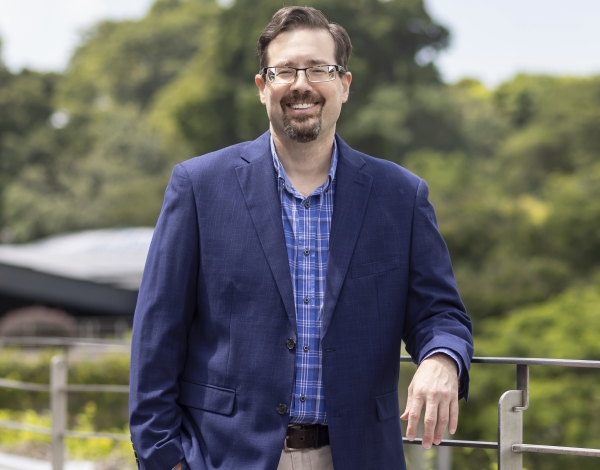
By Vince Chong
SMU Office of Research – In a revealing piece of research coauthored by a Singapore Management University academic, public policies to ease urban heat in one of the largest first world cities have seen price gaps emerge between homes in cooler and hotter areas, with lower-income residents choosing to live in the latter, cheaper neighbourhoods.
What this means, SMU Assistant Professor of Economics (Education) Eric Fesselmeyer tells the university’s Office of Research, is that the poorer demographic of New York City (NYC), US, are preferring to suffer rising mercury levels in return for more disposable income, even if government policies are typically aimed at helping vulnerable areas.
“With NYC, we found that people adjust to the heat in peculiar ways,” he says of the research paper Urban heat and within-city residential sorting, which he wrote alongside Associate Professor Stefan Borsky, University of Graz, Wegener Center for Climate and Global Change, and Dr. Lennert Vogelsang, then also of the University of Graz.
“When they have money, they live in areas that cost more. The poorer demographic makes this trade-off to have money left over for other things. That’s a choice they’re making but they may not realise the long-term consequences behind it.”
These may range from education, with children less able to focus on their studies in the heat, to health and economic productivity.
The paper highlights the “challenge that policymakers often encounter in adaptation planning for urban heat,” including investments to alleviate heat like installing vegetation cover as well as reflective roofing and paving.
Apart from being one of the developed world’s most populous cities with roughly 8.5 million residents, NYC also launched the US$106 million Cool Neighbourhoods NYC project in 2017 and before that, plans to plant millions more trees in the city.
Further, says Professor Fesselmeyer – an American who grew up in the NYC suburbs – the city provides good data sets that facilitate climate change studies.
As the research also notes, the study provides evidence on environmental consequences on a local scale – where “physical and psychological moving costs are relatively low” – since there is already a trend of Americans basing themselves further away in other cities that are cooler in summer and warmer in winter.
Unintended consequences
In one part of the research, the authors simulate situations where, after implementing cooling measures, temperatures in poorer areas are reduced by one degree Fahrenheit (F), or 0.56 degree Celsius, and two degrees F. These measures include coating suitable rooftops and pavements with a reflective colour, and planting trees.
They then calculate welfare implications by determining expected household utility under the simulated conditions in dollar terms. The result? When temperatures fall by one degree F, higher-income households are predicted to gain between US$27 and US$81 annually in welfare utility, which is understood as the perceived value associated with a particular good or service; those at the other end may lose up to US$372.
The two-degree F scenario predicts a similar trend on a bigger scale: higher- and lower-income demographics may gain and lose up to US$145 and US$635 respectively.
“[H]ousing prices will change, leading to re-sorting of households, and unanticipated changes in household welfare,” the paper notes, even if public heat-reduction programs are particularly focused on vulnerable neighbourhoods.
It caveats however, that its findings assume uniformity in factors such as preferences and income. Also, it does not factor in what the NYC government may choose to do to counteract “undesirable re-sorting”, for example, by launching information campaigns or measures to reduce anticipated changes in welfare.
Another assumption, the paper points out, is that poorer households may use the extra income left over from choosing to live in cheaper, hotter areas to, for example, spend on more air conditioning. Still, in this instance at least, NYC data shows that air-conditioning rates remain tied to income, with more affluent households using more of it.
Subsidised air conditioning, investing in human capital?
Not surprisingly, Professor Fesselmeyer cannot see a straight path to striking the perfect balance between public policies to combat rising temperatures, and the market economy. And the situation is far from abating: an end-June 2024 report from the International Institute for Environment and Development shows that over the past 30 years, the world’s most populous capital cities posted a 52 percent rise in the number of days hitting 35 degree Celsius.
Governments could subsidise air conditioning bills for example, the climate economist says, but that has undesirable side-effects. As a United Nations report notes, additional air conditioning could see the world use more than twice the electricity it does now to stay cool. That is to say, even more greenhouse gases would be produced to exacerbate rising heat.
“We can also invest in human capital by, for example, educating children through schools on how to help protect the environment, or the general populace through public campaigns,” Professor Fesselmeyer tells the Office of Research.
“Singapore does this very well because mainly, we pretty much all agree that climate change has a negative effect on us. This means public policies to help with heat are already popular.”
The Lion City, he adds, invests substantially on research and academics like him are often called up for advice. For example, the government is looking into replacing existing air conditioners with larger, more advanced units that are greener to operate, “while its urban planning incorporates many forms of green technology.”
“The government here sees the value in using research to guide policy,” he says. “It isn’t like this everywhere. In certain places, the government even denies climate change, in spite of all the science on how climate change is really man-made.”
Back to Research@SMU August 2024 Issue
See More News
Want to see more of SMU Research?
Sign up for Research@SMU e-newslettter to know more about our research and research-related events!
If you would like to remove yourself from all our mailing list, please visit https://eservices.smu.edu.sg/internet/DNC/Default.aspx

